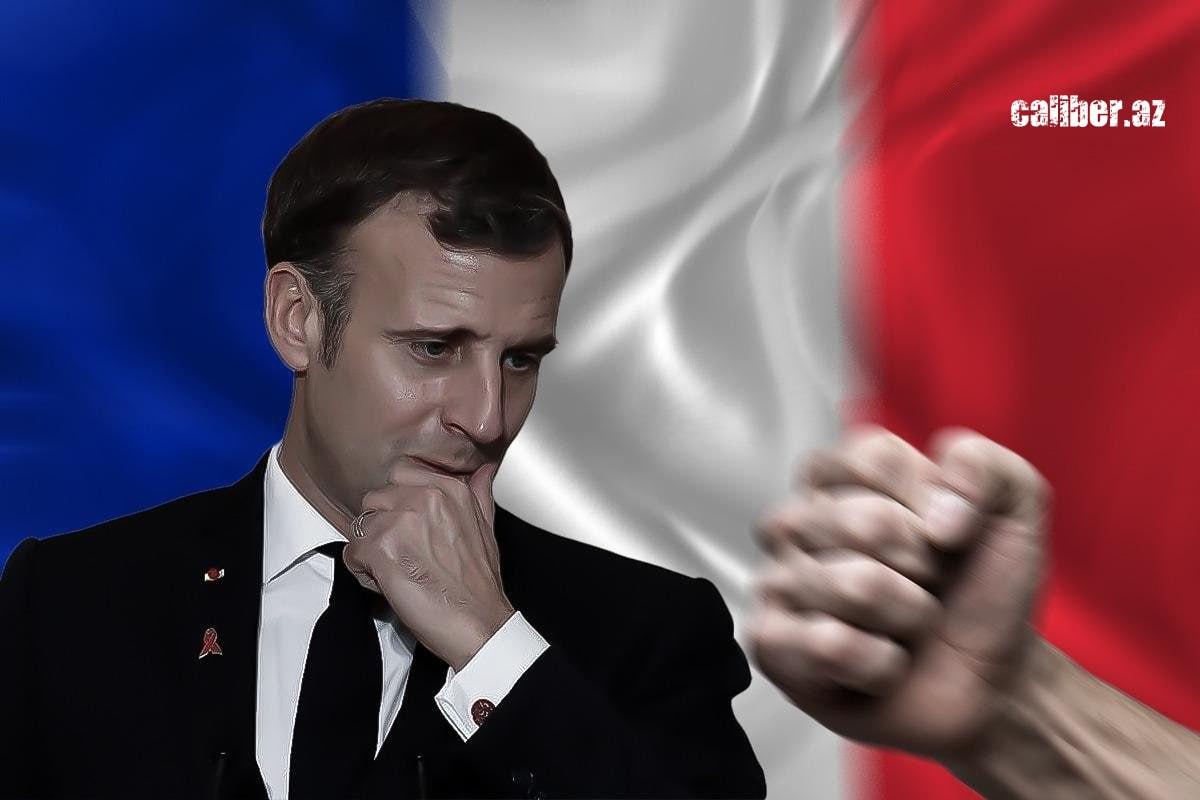Africa turns the page: France faces geopolitical isolation as new powers rise Anadolu Agency breaks down Macron’s crisis
In a thought-provoking article published on the Turkish Anadolu Agency's website, Jonathan Fenton-Harvey, a researcher specializing in Middle Eastern and North African geopolitics, explores the growing decline of France's influence in Africa. Caliber.Az presents a paraphrased version of this insightful analysis, offering readers a closer look at the shifting dynamics in the region.
French President Emmanuel Macron is currently grappling with crises on both the domestic and international fronts. At home, his government is facing mounting unpopularity, most notably marked by the December 4 collapse of Prime Minister Michel Barnier’s administration after a no-confidence vote.
Internationally, Macron is witnessing the steady erosion of France’s influence in Francophone Africa, a region that has long been considered France’s geopolitical sphere of influence, even after the dissolution of the French Empire.
In late November, Chad made the decision to end its military cooperation agreement with France, followed closely by Senegal. These two nations, which hosted around 1,350 French troops combined, explained their moves as efforts to preserve national sovereignty. Increasingly, local sentiment has shifted, seeing the French military presence not as a safeguard but as an obstacle to self-determination.
This shift is part of a wider pattern in Western Africa, particularly in the Sahel region, where there has been growing anti-French sentiment. In recent years, military coups in Mali, Niger, and Burkina Faso have been accompanied by vocal demands to expel French forces. In Mali, the junta turned to Russia’s Wagner Group for military support, leading to the expulsion of French troops. Similar moves have taken place in Niger and Burkina Faso, further shrinking France’s military footprint.
The loss of Chad is especially significant, as it has been a key pillar of France’s military presence in Africa for decades, enabling operations across the Sahel, Central Africa, and into Libya. Similarly, Senegal’s decision to terminate its agreements with France, which date back to the 1960s, marks the end of a longstanding partnership. The termination of French military presences across the region is not just a blow to Paris’s influence, but also signals a broader shift by African countries seeking new alliances, with many turning to Russia and China.

In response to these developments, France has begun to pivot toward Anglophone African nations, where colonial history is less of a burden. Nigeria, Africa’s largest economy, has become a key area of focus. In November, Nigerian President Bola Tinubu visited Paris, where both nations signed a $300 million agreement aimed at boosting infrastructure, renewable energy, agriculture, and healthcare. France has also strengthened ties with Kenya and Rwanda, securing important agreements on climate action and development.
However, France’s renewed outreach to Anglophone Africa faces its own challenges. Regional analysts have raised concerns over whether France can be a reliable partner, especially given its controversial track record in the Sahel and concerns about exploitation of resources like uranium, gold, and oil in countries such as Niger, Chad, and Mali. There are also lingering doubts about whether France can truly deliver on promises for development in the region.
The setbacks in West Africa serve as a wake-up call for Paris. They highlight the decline of France’s traditional model of influence, which was built largely on military aid, and point to the need for a more balanced, equal partnership with African nations. Macron’s shift to strengthen ties with Anglophone African countries is an acknowledgement of the changing geopolitical landscape. As African nations increasingly look beyond the traditional Western powers, France must adapt to a multipolar world. If France fails to adjust, it risks losing its relevance in Africa, further diminishing Macron’s efforts to maintain French influence in a rapidly changing global order.
By Tamilla Hasanova








